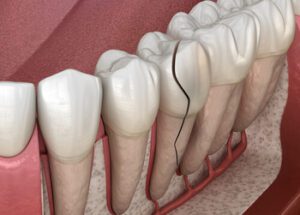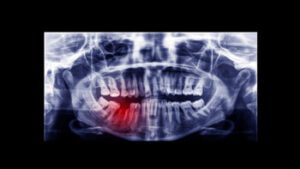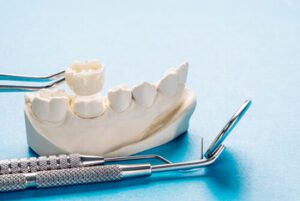A root canal is a dental treatment that helps fix a damaged tooth. This treatment is used when a tooth is badly infected or has deep decay. Many people feel worried about getting a root canal, but the procedure is often simple and helpful. Understanding how long it takes to recover after a root canal can help you feel more at ease.
In this guide, we will explain what to expect during recovery. You will learn how long it takes, how to care for your tooth, and what steps you can take to recover quickly. By the end, you will feel confident about the process and ready to follow the steps that will help you heal well.
What Is Root Canal Therapy?
Root canal treatment, or endodontic therapy, disinfects an infected tooth. During the procedure, your dentist removes the infected tissue inside the tooth. The pulp, which has nerves and blood vessels, is cleaned out and replaced with a specific filling. This helps stop the infection and prevents the tooth from being removed.
Root Canal Recovery Time: What To Expect
The recovery time after a root canal treatment can be different for each person. Yet, you may heal quickly and feel only a little pain. Here’s what you can expect as you recover:
Immediate Recovery: First Few Hours

In the first few hours after your procedure, it’s best to avoid eating hard or chewy foods. Instead, eat soft foods like yoghurt, mashed potatoes, or soup.
These will be easier on your tooth as it starts to heal. Also, be careful with your treated tooth. If your dentist puts in a temporary filling, you don’t want to disturb it.
Days 1–3: Initial Healing
During the first few days, it is common to feel mild discomfort or sensitivity in your tooth.
This usually happens because the soft tissue around the tooth is healing. You might also feel a little pressure or discomfort when chewing. If your dentist placed a temporary crown on your tooth, it might feel different, but this is normal and will settle over time.
Here are a few things your dentist will likely tell you to do during the first few days as you recover from a root canal:
- Avoid Chewing On The Treated Tooth: This will help protect the tooth and allow it to heal properly.
- Take Pain Medicine: Your dentist may suggest pain relievers if you feel mild pain. Always follow the instructions that your dentist gives you.
- Avoid Hot Or Cold Foods And Drinks: Extremely hot and cold items might make your teeth sensitive. Stick to room-temperature foods and drinks for the first few days.
- Brush Your Teeth With Care: You should still brush your teeth as you should to keep your mouth clean. But be extra careful around the treated tooth. Try not to brush the treated tooth too hard for the first few days. It will feel sensitive, and you want to avoid irritating it.
Factors That Can Affect Root Canal Recovery Time
Most people recover quickly after a root canal, but some things can prolong your recovery time. These things can be different for each person. Let’s look at some of the factors that can affect how long a disinfected tooth takes to heal:
How Infected The Tooth Was
If your tooth has a very bad infection, healing might take a little longer. When a tooth has a lot of infection, the dentist has to clean out more of the damaged areas inside the tooth.
This can slow the healing process because the body needs more time to get rid of the tooth infection. If the infection is deep, your body might take longer to recover.
How Complicated The Treatment Was
Some root canals are simple and easy, but others can be a bit more complicated. If your tooth was hard to reach or had a lot of damage, it might take more time to heal.
For example, the treatment might have taken longer if the tooth had more than one root or if the infection spread deep inside the tooth. This can affect how long it takes for your tooth to heal after the root canal procedure.
Your General Health
How quickly you heal also depends on your health. People with certain health problems, like diabetes, might take longer to recover.
Conditions like diabetes can make it harder for your body to fight infections and heal. If you have any health concerns, it’s important to talk to your dentist before your procedure so they can help you plan the best way to recover.
When To See Your Dentist During Root Canal Recovery

- Severe pain or swelling that doesn’t get better with pain relievers.
- A fever or other signs of infection.
- If the treated tooth feels loose or you have problems with biting.
- If the pain keeps getting worse instead of better.
The Root Canal Procedure: Step-By-Step
Before you start recovering, it’s helpful to understand what happens during a root canal.
Here’s a simple step-by-step explanation for the process:
Diagnosis And Preparation
The first step in a root canal therapy is for your dentist to check if you really need one. They might take an X-ray of your tooth to look for any problems inside. The dentist will also talk to you about your tooth and ask if you’ve been feeling pain or sensitivity.
The dentist will give you a numbing shot to ensure you don’t feel much discomfort during the procedure. This shot will numb the area around the tooth, so you won’t feel anything while they work on it.
Opening The Tooth
After the area around your tooth is numb, the dentist will make a small cut in the top of your tooth. This opening helps them get inside the tooth and reach the infected area.
Don’t worry; anaesthesia will make sure you don’t feel too much pain during this step. The dentist must carefully get to the damaged pulp inside the tooth to stop the infection.
Cleaning And Shaping
Once the dentist has opened the tooth, they will remove the infected pulp. Infected tooth pulp can cause pain, so it’s important to clean it out.
After removing the pulp, the dentist will carefully shape the space inside the affected tooth to make room for the root canal filling material. This helps ensure the tooth is ready to be sealed and won’t get infected again.
Filling The Tooth
After cleaning the tooth, the dentist fills the space with a specific material. This material helps seal the tooth and protect it from bacteria. Filling the tooth is important to prevent future infections and keep it strong.
The dentist will make sure the filling fits properly so that the tooth is ready for the next steps in the recovery process.
Restoration
Once the procedure is complete, the dentist will place a temporary filling in the tooth. This temporary filling will protect the treated area while it heals.
Over time, the tooth will begin to feel better, but you might need a permanent filling or dental crown to make sure the tooth is fully restored. Your dentist will talk to you about the best way to restore your tooth after the root canal is done.
Frequently Asked Questions
How can I tell if I need a root canal?
You might need it if your tooth hurts a lot, especially when chewing or drinking, or if it feels sensitive to hot or cold. Your dentist will check your tooth to see if it’s needed.
Will my tooth look normal after a root canal?
After a root canal, your dentist may put a filling in the tooth to protect it. Later, you might need a dental crown to cover the tooth and make it look normal again.
Can I go back to work after a root canal?
You can go back to work after a root canal. You might feel sore, but you can still do your usual activities. Just remember to rest if you need to.
Can a root canal be done in one visit?
Sometimes, a root canal can be done in one visit. Other times, you might need more than one visit, especially if the infection is very bad. Your dentist will explain how many visits you’ll need.
Can I play sports after my root canal?
After your recovery, you can usually return to sports. But, for the first few days, you should avoid hard chewing or anything that might hurt your teeth. Follow your dentist’s advice for the best possible recovery.
Can I smoke after a root canal?
It’s best to avoid smoking after a root canal because it can slow down your healing process. Smoking can also affect your gums and the success of the treatment.
Can a root canal cure my tooth pain forever?
A root canal removes the infected tissue inside your tooth, which should stop the pain. If the tooth is healthy after the treatment, the pain should not return. Yet, caring for your tooth is important to keep it in good shape.
Can my tooth get infected again after a root canal?
Yes, your tooth may get infected again after a root canal. Following your dentist’s instructions, such as keeping your mouth clean, can help prevent this.
Will I need a root canal if my tooth is only a little sore?
If your tooth is slightly sore, it may not need a root canal. Sometimes, a filling or other treatment is enough. Your dentist will check your tooth and suggest the best possible option.
Conclusion

By caring for your tooth and following your dentist’s advice, your tooth will heal well, and you will be able to enjoy your regular activities quickly. Always ask your dentist if you have any questions or feel unsure about anything. They are there to help you and make sure everything goes smoothly.
If you have any questions or need a root canal, don’t wait! We’re here in Bulimba to help you care for your teeth and keep your smile healthy.
Contact Balmoral Dental Centre today at (07) 3113 9789 to speak with one of our friendly dentists.
Note: Any surgical or invasive procedure carries risks. Before proceeding, you should seek a second opinion from an appropriately qualified health practitioner.
Sources
The Australian Dental Association. Root Canal Treatment [Internet]. Teeth. [cited 2024 Dec 19]. Available from: https://www.teeth.org.au/root-canal-treatment
Colgate. Here’s What To Eat After A Root Canal [Internet]. Colgate®. 2023 [cited 2024 Dec 19]. Available from: https://www.colgate.com/en-us/oral-health/root-canals/heres-what-to-eat-after-a-root-canal
Brazier Y. What to Expect From Root Canal Treatment [Internet]. Medical News Today. 2023 [cited 2024 Dec 19]. Available from: https://www.medicalnewstoday.com/articles/142780
Veronika. Old Root Canal Infection Symptoms [Internet]. NewMouth. 2024 [cited 2024 Dec 19]. Available from: https://www.newmouth.com/blog/root-canal-infection-symptoms/

